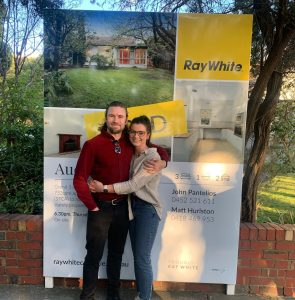Research and having the right people to help you are the keys when investing in property.
It definitely pays to do your homework on the property market before you dive in, and we’re thrilled to be on board to help you when it comes to financing your decision. Recent share market slides, tight rental markets in most capital cities and a whiff of increase in property prices are seeing many mum and dad investors retreat to bricks and mortar.
Generally, property in Australia is still considered to be a sound investment due to steady and consistent increases over time.
But it’s not a quick win. Property usually has a seven to ten year cycle, with highs, lows and steady stints in between.
Fortunately, an ongoing housing shortage in Australia and a tax system that allows negative gearing on property (where any investment losses can be claimed as tax deductions) continue to favour housing as a solid, long-term investment.
But credit has tightened in the wake of the Global Financial Crisis so lenders are more cautious about who borrows and for what. We are here to help find the right lender and loan for your circumstances in this new environment. We can also wade through the many investment loan options on offer, leaving you more time to find the ideal property.
Here are some tips to help you find the right rental and reap the most rewards.


Unit or house?
House prices often increase in bigger strides than units, offering more potential for capital gain over time. But a rental home also comes with added responsibilities, including gardens and lawns (and sometimes a pool) to maintain.
A unit or townhouse may not increase in value as quickly, but they are generally easier to maintain and may even be easier to rent for that very reason, depending on location, condition and size.
Remove the emotion
One of the worst mistakes you can make with any investment is to buy with your heart instead of your head. Remember, your rental property is not your ‘home sweet home’.
A well-presented property is desirable, but think sensible, not swank.
Ideally, you want a neutral interior colour scheme, serviceable and resilient flooring and window coverings, a low-maintenance yard and good storage. And if buying an older style unit, look for one with an internal laundry, a garage or car space and few stairs (unless there’s a great view to be had higher up, which can add to the property value).
Location, location
Of course, you’ve heard this before. But location can mean different things when it comes to rental properties. Renters are often looking for maximum convenience so consider properties near schools, major shopping centres and public transport.
Spend plenty of time researching target areas, including recent property price movements and future predictions, rental vacancy rates and any proposed infrastructure improvements. You should also do some scouting as if you were a renter to get a first-hand look at the local market.
Don’t forget the extras
An investment property requires regular financial commitment beyond the loan repayments. Make sure you have the capacity to cover land and water rates and any maintenance and repair costs. Tenants are entitled to repairs or replacements as quickly as possible under their rental agreement, so you will need to have the means to pay.
Apartments or units also come with body corporate fees, which can run to thousands in some modern complexes with professional landscaping and shared amenities, such as swimming pools.
Any interest?
Many property investors take advantage of interest-only loans because interest payments are tax deductible. That means you’re taking a punt that the property’s value will increase over time, leaving you with a financial gain in the long run.
This is a good strategy for high income earners who are taking advantage of negative gearing. If you choose to positive gear your investment (i.e. generate a profit from the rental income after costs), you might want to consider a principal and interest loan and use the profit to shave off the principal.
Just remember, you will pay tax on any income from your investment. Talk to your accountant about your tax situation so your broker can find the right loan.
Appreciate depreciation
The ATO will give you a discount off your tax bill for wear and tear on property. It’s known as depreciation, and can be a very handy windfall for investors, especially if you buy a new property.
The formula is quite complex and depends on the age of your property, building materials and the various fittings. That’s where a professional quantity surveyor comes in. For a fee (often around $600), they’ll assess the property and complete a Tax Depreciation Schedule, which your accountant will incorporate in your tax return.
Taking ownership
If you need both incomes to be considered in the lending equation, speak with us to get the right advice on the best ownership equation for your circumstances.
